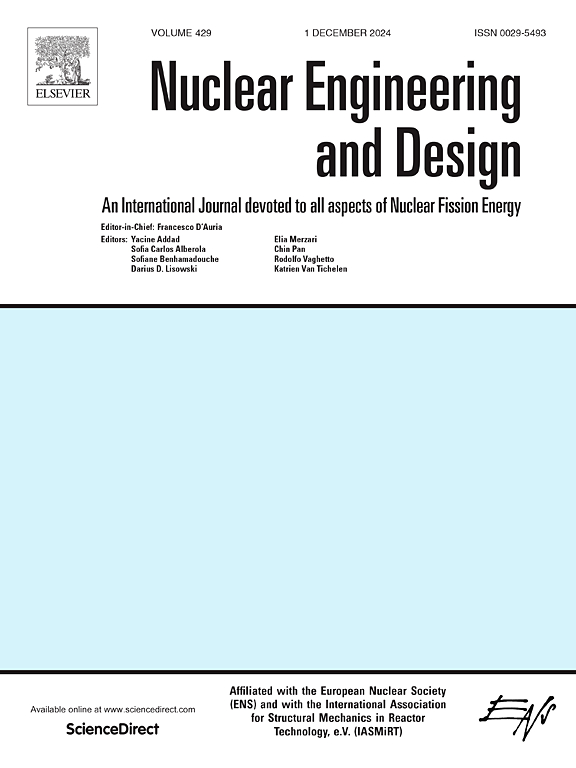推进熔盐堆技术:优先考虑标准化需求并弥合差距
IF 2.1
3区 工程技术
Q1 NUCLEAR SCIENCE & TECHNOLOGY
引用次数: 0
摘要
本文概述了与熔盐堆(MSR)相关的特定主题的关键标准化需求,即热物理特性的测量、安全评估、燃料和燃料循环的鉴定,以及材料和组件的规范和标准。它还探讨了在国际标准化、协调和合作方面弥合差距的战略,并提出了建立MSR原型和投资于测试设施的重要性。本文基于2024年3月18日和19日由欧洲委员会联合研究中心(JRC)、欧洲标准化委员会(CEN)和欧洲电工标准化委员会(CENELEC)组织的“将科学纳入标准”研讨会的调查和直接投入。研讨会聚集了来自研究、工业和政策制定部门的100名专家,讨论MSR技术的发展和标准化问题。通过在欧洲和国际层面共同努力,标准化将成为实现成熟MSR技术开发和商业化的关键工具,以支持欧盟到2030年实现功能齐全的小型模块化反应堆的目标。本文章由计算机程序翻译,如有差异,请以英文原文为准。
Advancing molten salt reactor technologies: Prioritizing standardisation needs and bridging gaps
This article outlines key standardisation needs for specific topics related to molten salt reactors (MSR), namely measurements of thermo-physical properties, safety evaluation, qualification of fuels and fuel cycles, and codes & standards for materials and components. It also explores strategies for bridging gaps in international standardisation, harmonisation and collaboration, and raises the importance of building MSR prototypes and investing in testing facilities. This article is based on a survey and direct inputs from a Putting Science into Standards workshop held on 18 and 19 March 2024 and organised by the European Commissions’ Joint Research Centre (JRC) and European Committee for Standardization (CEN) and European Committee for Electrotechnical Standardization (CENELEC). The workshop gathered 100 experts from research, industry and policy making to discuss the development and standardisation of MSR technologies. By working together at European and international levels, standardisation will be a key instrument to enable the development and commercialisation of mature MSR technologies to support the European Union’s goal of achieving fully functioning small modular reactors by 2030.
求助全文
通过发布文献求助,成功后即可免费获取论文全文。
去求助
来源期刊

Nuclear Engineering and Design
工程技术-核科学技术
CiteScore
3.40
自引率
11.80%
发文量
377
审稿时长
5 months
期刊介绍:
Nuclear Engineering and Design covers the wide range of disciplines involved in the engineering, design, safety and construction of nuclear fission reactors. The Editors welcome papers both on applied and innovative aspects and developments in nuclear science and technology.
Fundamentals of Reactor Design include:
• Thermal-Hydraulics and Core Physics
• Safety Analysis, Risk Assessment (PSA)
• Structural and Mechanical Engineering
• Materials Science
• Fuel Behavior and Design
• Structural Plant Design
• Engineering of Reactor Components
• Experiments
Aspects beyond fundamentals of Reactor Design covered:
• Accident Mitigation Measures
• Reactor Control Systems
• Licensing Issues
• Safeguard Engineering
• Economy of Plants
• Reprocessing / Waste Disposal
• Applications of Nuclear Energy
• Maintenance
• Decommissioning
Papers on new reactor ideas and developments (Generation IV reactors) such as inherently safe modular HTRs, High Performance LWRs/HWRs and LMFBs/GFR will be considered; Actinide Burners, Accelerator Driven Systems, Energy Amplifiers and other special designs of power and research reactors and their applications are also encouraged.
 求助内容:
求助内容: 应助结果提醒方式:
应助结果提醒方式:


